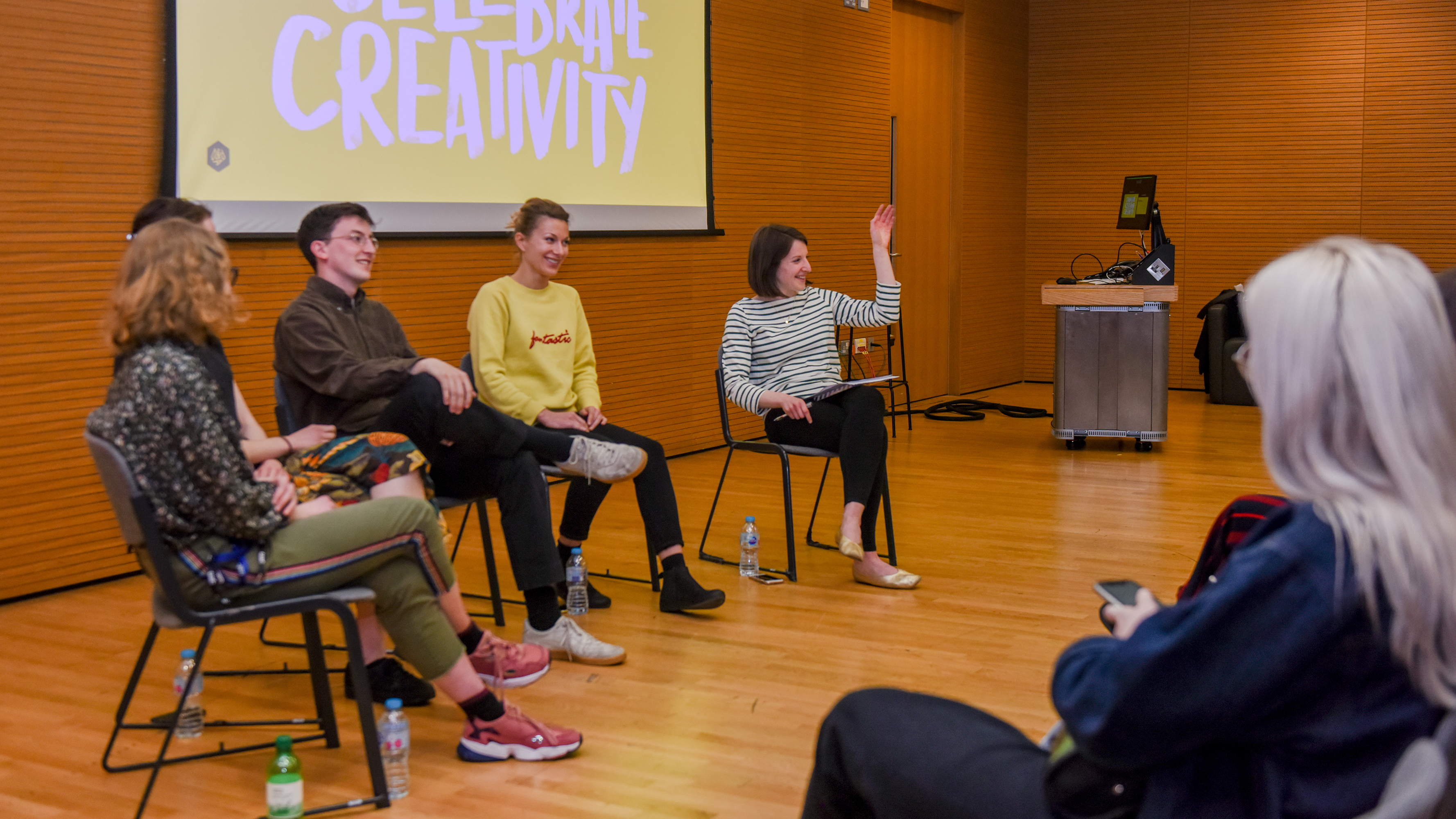We asked UAL student Karolina Liczbinska to attend our 'What I Wish I’d Known When I Graduated' panel event and share her top tips…
UAL graduates and former D&AD New Blood Awards winners returned to Central Saint Martins for this Graduate Futures Week panel event. They spoke about what they wish they knew when they graduated – sharing top tips, regrets, and words of wisdom. Here’s what I learned.
Use everything that London has to offer.
“If you’re paying the London rent, you might as well make the most of it,” says Shalyn Wilkins, Junior UX Designer at BBC, and she has a good point. This city is one of the best places for furthering your career, and there is plenty of opportunities to get ahead. Shalyn specifically recommends enrolling in a mentoring scheme or trainee schemes, going to industry events (like D&AD New Blood Festival - go mingle!) and talking to as many people as you can – generally: being proactive. Also, make the most of the UAL Careers services for things like portfolio checks and online graduate support.
You may work in a career that hasn’t been created yet. With all the rapid developments happening in technology, your future position might not exist yet – isn't it exciting?
Be exposed and have an understanding of the industry. Speaking of rapid changes, it’s important to keep yourself in the loop and be aware of all the things happening in your chosen field.
If you don’t like it, don’t show it: that’s regarding your portfolio. Only feature work that you feel proud of and would like to do again. Remember that your portfolio is a work in progress – it will expand and change as you improve and grow, so don’t get too hung up on the idea of “finishing it.”
Stay flexible and open minded. Inguna Ziemele wasn’t always set on becoming an illustrator, the career just sort of found her – her friends loved her drawings and encouraged her to keep creating more, and at some point she realised that most of her work is illustration and thought, “Okay, I guess this is what I’m doing.” One day you might also surprise yourself and realise a talent you haven’t been paying that much attention to is actually what you should focus on, and it’s important to embrace that and all the opportunities that come with it!
It’s also okay if you don’t find your calling immediately – not everybody has a detailed five-year plan that they stick to religiously. Straying from your original path to explore other options is valuable too. Polina Hohonova, designer at Paul Belford, says she regrets not giving herself room to experiment: she just “chose her thing and stuck to it” and never even considered any alternatives. Check in with yourself every once in a while to make sure you still feel aligned with your goals, and if you realize your dreams from three years ago have changed and you’d rather pursue something else, don’t be afraid to do it!
Another tip from Polina: “If you don’t know what you want to do, find out what you DON’T want to do.” That’s why internships are so useful – you get to try on a career without the long-term commitment.
Also, be aware that post-graduation life is different for everyone, and there’s no telling if you’ll find it difficult or not. Polina says it’s very random and you might struggle in your transition from being at university to being in the workforce – or you might not. Just prepare yourself for the worst and hope for the best.
Freelancing is not for everybody. Inguna advises against going freelance straight after graduation, saying it’s “intense” and “emotionally hard, depending on how thick your skin is.” As with anything, there are pros and cons. “A full-time job is a luxury,” she says, but the main advantage of going freelance is getting to choose what you do and when you do it.
You will probably never feel like you 100% know what you are doing, and that’s okay. Adam Crockett, currently undergoing a creative placement at Mother, claims that most people don’t have a clue what they’re doing. “You’re not alone,” he says. “They’re winging it too.” What’s more, you can use your lack of experience to your advantage. If you go in without a clue, you’ve got a clear head and a fresh eye – you're not set in your ways yet, so you’re likely to think outside the box and be innovative.

